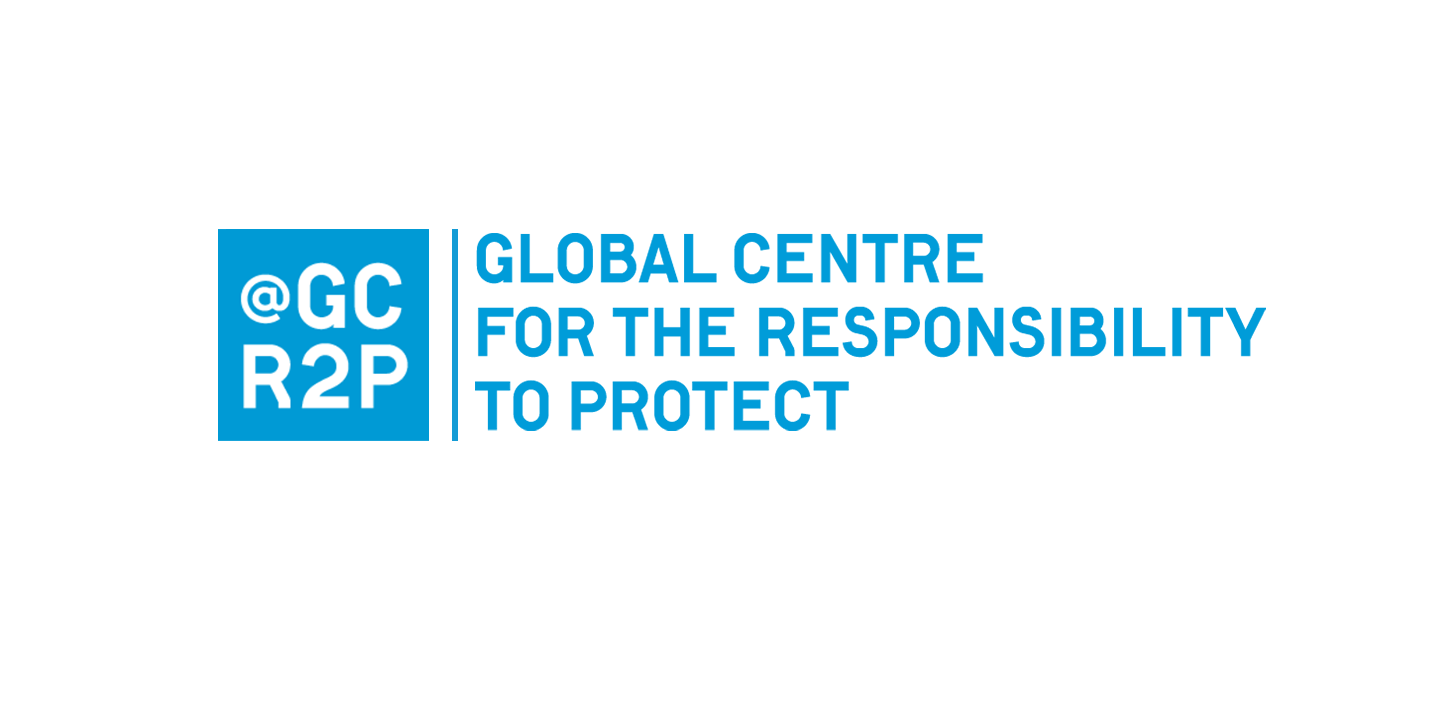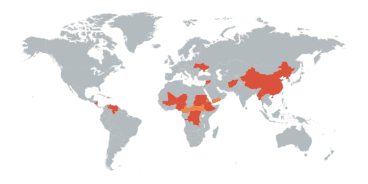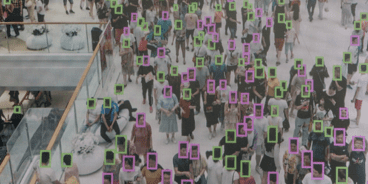

Global Centre for the Responsibility to Protect Submission to the Committee on Economic, Social and Cultural Rights on China
In response to a request for submissions by the Committee on Economic, Social and Cultural Rights (CESCR), the Global Centre for the Responsibility to Protect provided brief analysis on the Chinese government’s breaches of the International Covenant on Economic, Social and Cultural Rights (ICESCR), primarily through the lens of mass atrocity risks, atrocity prevention and the international norm of the Responsibility to Protect.
Background
China has perpetrated a repressive campaign against Uyghurs and other majority-Muslim ethnic groups for several decades. Under the guise of combating religious extremism and terrorism, since 2017 the Chinese government has severely escalated its persecution of members of the ethnic Uyghur community, as well as Kazakhs, Kyrgyz, and other majority-Muslim ethnic groups in the northwestern Xinjiang Uyghur Autonomous Region (XUAR). The Chinese government’s ultimate goal appears to be to forcibly assimilate Uyghurs and other majority-Muslim ethnic groups into the dominant Han Chinese group. Beijing’s abuses likely constitute mass atrocity crimes.
Probable crimes against humanity include torture, forcible transfers, arbitrary imprisonment and large-scale detentions, forced labor, enforced disappearances, and rape and other forms of sexual violence. The Chinese government has also likely perpetrated genocide in XUAR, most infamously by conducting a coercive campaign to forcibly reduce birth rates among Uyghurs and other majority-Muslim populations in XUAR. The Chinese government also appears to be intentionally perpetrating at least three other acts prohibited under the Genocide Convention, including causing serious bodily and mental harm; inflicting living conditions that are intended to bring about the group’s destruction; and forcibly transferring Uyghur children to state-run orphanages and boarding schools.
In addition to constituting violations of the Genocide Convention and the Rome Statute, many of these violations also constitute violations of ICESCR. GCR2P respectfully urges CESCR to conduct its review of China through an atrocity prevention lens, including by focusing on the intersection between violations of the Covenant and the commission of atrocity crimes in XUAR.
Forced Labor
Article 6 of the Covenant affirms “the right of everyone to the opportunity to gain his living by work which he freely chooses or accepts.” Likewise, Article 7 acknowledges “the right of everyone to the enjoyment of just and favourable conditions of work,” which include fair wages and “safe and healthy working conditions.” However, in XUAR, the government often does not afford Uyghurs and others the liberty to freely choose and accept where they work. Conditions are also often poor, and workers receive little pay.
Approximately 100,000 Uyghurs are working under conditions that strongly suggest forced labor, with many transferred from government-run detention camps to factories. Reports have identified at least 135 detention facilities in XUAR that have on-site factories where detainees are reportedly forced to work. International research and advocacy groups have documented evidence of Uyghur forced labor linked to cotton, tomatoes, chemicals, polysilicon for solar panels and other products sold globally. The UN Special Rapporteur on contemporary forms of slavery determined that forced labor among Uyghurs, Kazakhs and other ethnic minorities has been occurring in sectors such as agriculture and manufacturing in XUAR and Tibet. Moreover, in her August 2022 report, former High Commissioner for Human Rights Michelle Bachelet determined that employment schemes for the purported purposes of poverty alleviation and prevention of extremism “may involve elements of coercion and discrimination on religious and ethnic grounds.”
In addition to constituting a crime against humanity and a violation of the Rome Statute of the ICC, forced labor also constitutes a violation of the ICESCR, including Articles 6 and 7. GCR2P therefore urges CESCR to pay particular attention to the crime of forced labor in XUAR during the review of China.
Right to Family Life
Article 10 of the Covenant recognizes family as “the natural and fundamental group unit of society” and affirms that “marriage must be entered into with the free consent of the intending spouses.” However, in XUAR, marriage is not always something that spouses freely enter. According to research by the Uyghur Human Rights Project, the Chinese government has been promoting, incentivizing, coercing, and forcing Uyghur women to marry Han Chinese men since 2014 as part of Beijing’s broader campaign to forcibly assimilate Uyghurs into Han society and reduce the Uyghur population. Uyghur women are rarely in a position where they can refuse a Han suitor, often due to a fear of detention. Long a rarity, Uyghur-Han marriages have been steadily rising since 2018.
Cultural destruction — including campaigns against Uyghur language, culture, and religion — is central to Beijing’s efforts to forcibly assimilate Uyghurs. The Chinese government often promotes intermarriage as an important way to support “ethnic unity.” Therefore, coerced and forced intermarriage is yet another way the Chinese government is seeking to dilute and destroy Uyghur culture and assimilate Uyghurs into dominant Han society. The phenomenon of coerced and forced intermarriage in XUAR also likely constitutes a violation of Article 10 of the Covenant. Therefore, GCR2P respectfully urges CESCR to pay particular attention to this issue and its connection to the Uyghur genocide during the review of China.
Right to Health
Article 12 of the Covenant recognizes “the right of everyone to the enjoyment of the highest attainable standard of physical and mental health.” However, many of the Chinese government’s abuses in XUAR are in direct conflict with this right. Over 1 million people, mainly Uyghurs, have been detained in so-called “re-education” and “de-extremification” facilities in XUAR. Detainees experience conditions characterized by extreme physical and psychological torture, which, in addition to likely amounting to genocide and crimes against humanity, also likely constitutes a violation of Article 12.
Moreover, health extends to control over one’s own body, including in terms of reproduction. In XUAR, the Chinese government has embarked on a coercive campaign to reduce Uyghur births, including through forced sterilizations, forced abortions, and mandatory birth control. This campaign led to a nearly 50% birth rate decrease from 2017 to 2020 in XUAR. Beijing’s campaign to reduce Uyghur births in this way likely constitutes genocide and is also in violation of Article 12 of the Covenant.
Lastly, Uyghurs and other persecuted groups also face intense surveillance by the government in XUAR. Police checkpoints, the widespread use of facial recognition cameras and the forced collection of biometric data have turned XUAR into a de facto police state. This extreme surveillance network helps facilitate the perpetration of mass atrocities, and it also makes it impossible for Uyghurs and other persecuted groups to attain a high standard of mental health.
The Chinese government appears to be violating Article 12 of the Covenant in these main ways in XUAR. All three of these elements are also directly and indirectly tied to the commission of mass atrocity crimes in XUAR, so GCR2P respectfully urges CESCR to consider them during the review of China.
Right to Cultural Life
Article 15 of the Covenant recognizes that everyone has the right to take part in cultural life. Parties must also support “the conservation, the development and the diffusion of science and culture.” The Chinese government is in violation of this article due to its extensive efforts to destroy Uyghur culture in XUAR. The Chinese government has embarked on a campaign of cultural destruction in the region in an effort to erase Uyghur culture, as well as Kazakh and Kyrgyz cultural heritage. Cultural destruction is well-defined as a genocide warning sign and evidence of genocidal intent because attacks against cultural heritage can constitute attacks against a group’s identity and its right to exist.
In XUAR, the Chinese government has outlawed the practice of Islam due to purported concerns over “extremism.” Even possessing a Quran can lead to detention. The government passed the “Regulation on De-extremification” in 2017, banning a range of apparently “extreme” behaviors, like beards and Islamic-sounding names. The government has even cracked down on halal food and Uyghur music. The heritage items of muqam, karez, manas, meshrep, and the Xinjiang Tianshan mountain range are all also under threat. Since 2017 the Chinese government has destroyed or damaged about 16,000 mosques in Xinjiang, or 65% of the total. Moreover, 28% of other important Islamic sacred sites — such as shrines, cemeteries, and pilgrimage routes — had been damaged, and an additional 30% had been completely destroyed. The Chinese government also imprisons intellectual, cultural, and religious Uyghur leaders, including at least 1,046 imams since 2014. All of these tactics serve to destroy Uyghur ways of life.
The Chinese government is seeking to destroy Uyghur culture in order to forcibly assimilate Uyghurs into Han society. China’s campaign of cultural destruction constitutes a violation of ICESCR’s Article 15. GCR2P respectfully urges CESCR to pay particular attention to the Chinese government’s violation of Article 15 and to consider these violations in terms of how they fit within Beijing’s broader genocidal campaign in XUAR.
Related Content


R2P Monitor, Issue 69, 1 June 2024
